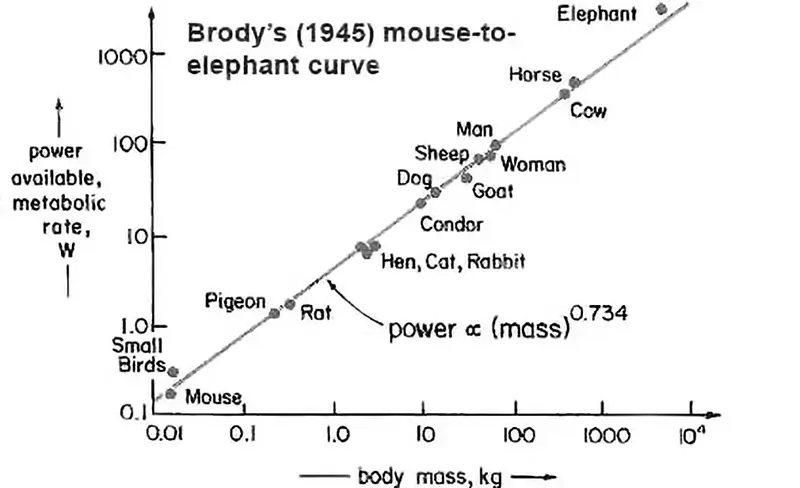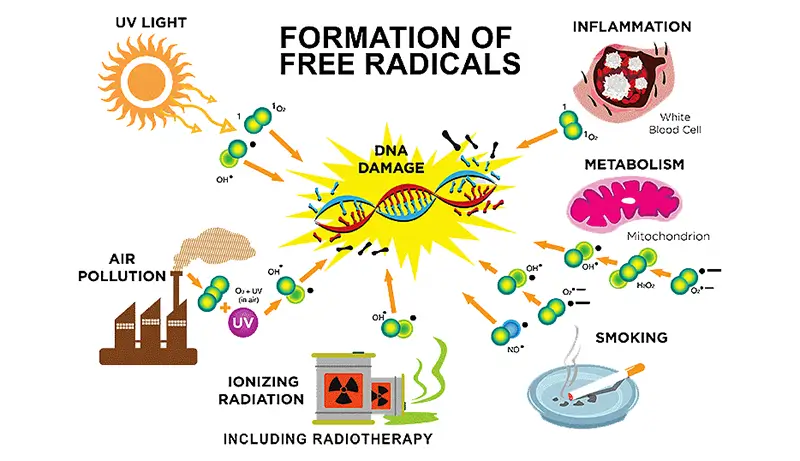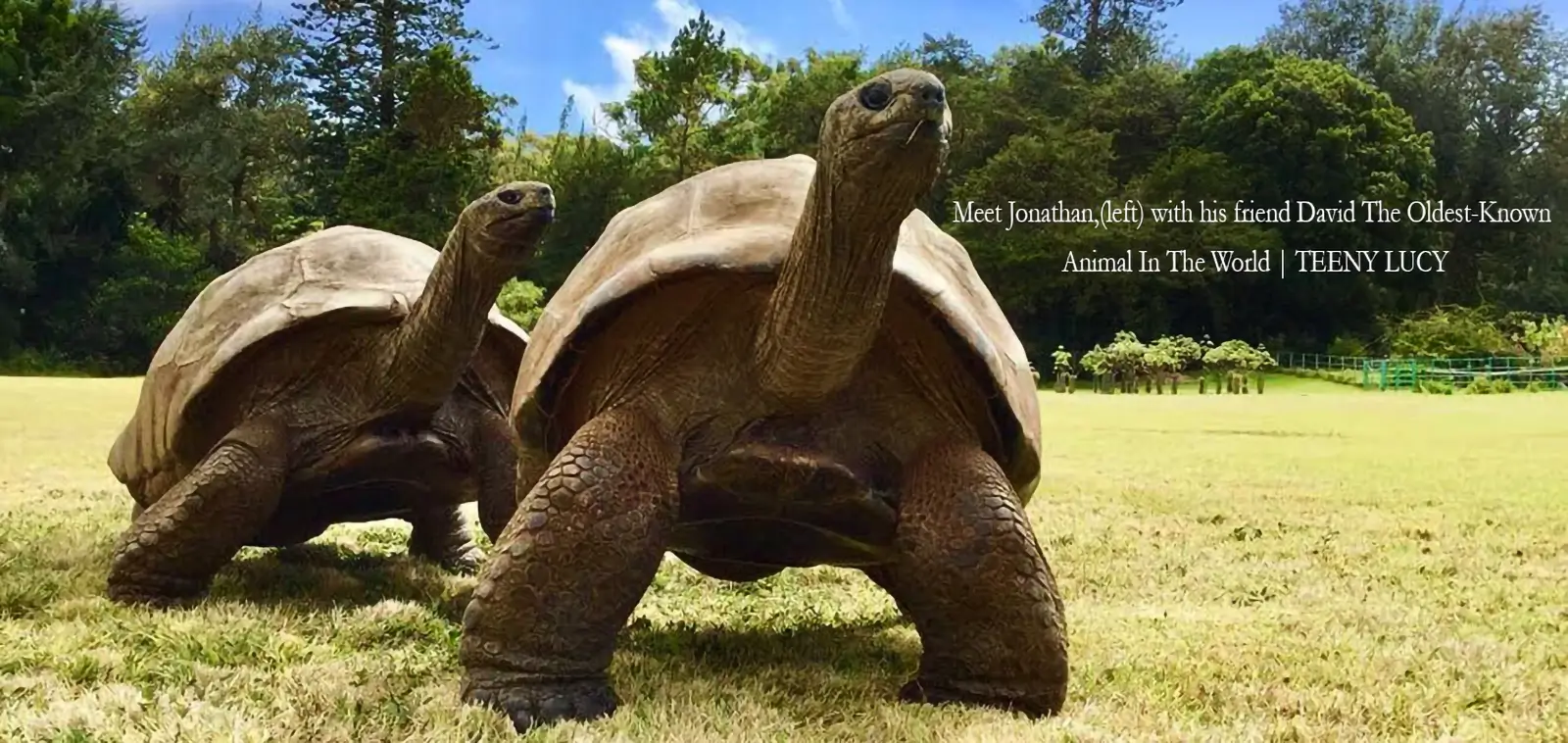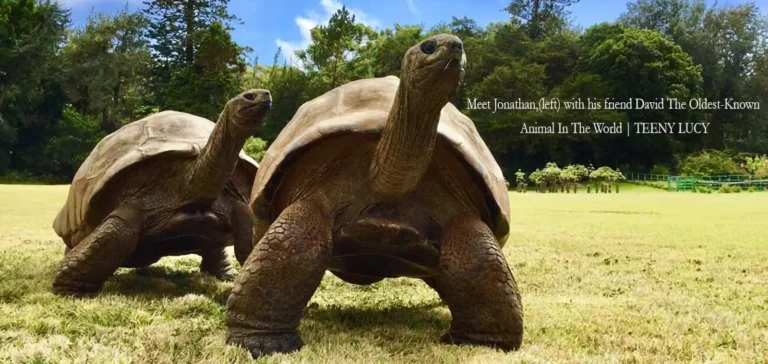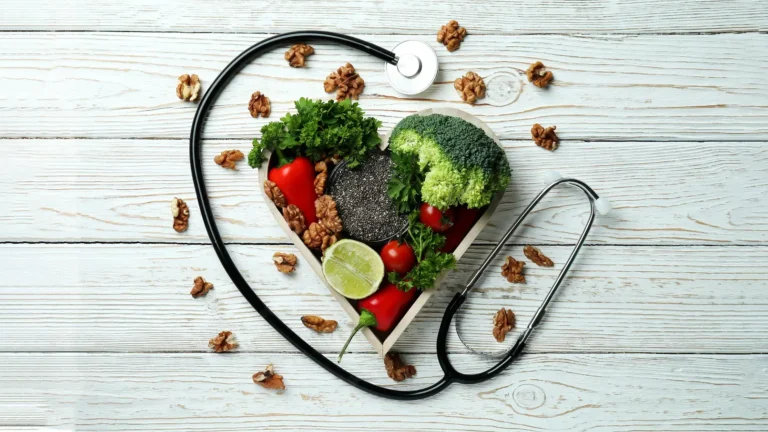Ayuno intermitente frente a restricción calórica: ¿hay alguna diferencia?
Hay una forma de dieta que está diseñada principalmente para utilizar la autofagia llamada ayuno intermitente. Hacer una dieta de restricción calórica total es una elección difícil.
Milos Pokimica
Escrito por: Milos Pokimica
Revisado Médicamente Por: Dr. Xiùying Wáng, M.D.
Actualizado el 9 de junio de 2023Existe una forma de dieta que no está relacionada con la pérdida de peso principalmente. Incluso algunos culturistas parecen probarla. Es una dieta diseñada principalmente para utilizar la autofagia llamada ayuno intermitente.
Lo que se intenta es limitar la ingesta de calorías entre 4 y 8 horas al día. El resto del tiempo se ayuna para aprovechar este modo de curación. Sin embargo, no se reducirán las calorías, sólo se consumirán durante un período restringido.
Algunos estudios demuestran que esto también puede tener efectos beneficiosos. Es cierto que la frecuencia de las comidas no es tan importante como la cantidad y la calidad de los alimentos consumidos. Por lo tanto, lógicamente, si ingerimos todas las calorías en un periodo de 4 horas y estamos activos el resto del tiempo, es poco probable que quememos todas nuestras reservas de glucógeno, ya que las reponemos todos los días.
En ese sentido, el ayuno intermitente no podría aprovechar el mismo mecanismo curativo a nivel de restricción calórica. Si comemos menos y entramos en restricción calórica, no importa porque estaremos en déficit independientemente de cuándo comamos. Será una buena idea someter el ejercicio a un régimen de ayuno intermitente justo antes del final del ayuno, para agotar las reservas de glucógeno, o podemos combinar los tres métodos. Restricción calórica con ayuno intermitente y actividad física.
Para evitarlo, existe el ayuno de días alternos (ADF). Consiste en un ayuno de 24 horas seguido de un periodo de 24 horas sin ayuno. También hay ciclos de ayuno de días completos que especifican varias proporciones de días de ayuno y no ayuno, como la dieta 5:2. Se come durante cinco días y luego se ayuna con agua o zumos vegetales durante dos. Se come durante cinco días y luego se ayuna con agua o zumos de verduras durante dos. Hasta ahora, los estudios realizados en modelos animales han demostrado que el ayuno mejora indicadores de salud como la presión arterial, la sensibilidad a la insulina y la inflamación.
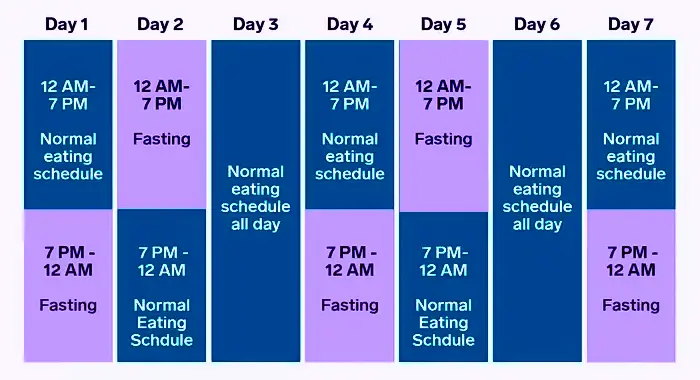
En mi opinión, el ayuno intermitente comenzó como una forma cómoda de hacer una dieta de restricción calórica. Hacer una dieta de restricción calórica total es una elección difícil. La mayoría de la población no lo hará. La línea de ayuno intermitente es ir y ayunar 1 o 2 días a la semana y limpiar nuestras células, reiniciar nuestro metabolismo para tomar el control de nuestros antojos de hambre, y así sucesivamente. Eso ayudará a nuestro cuerpo a entrar en autofagia y altos niveles de HGH y pondrá en marcha los mecanismos de curación.
Sin embargo, hay otro beneficio esencial de la restricción calórica, y es la reducción de la tasa metabólica basal. Si tenemos un coche con un millón de caballos de potencia, quemará un galón de combustible en un milisegundo, pero si tenemos un coche que funciona con un caballo de potencia, irá mucho más tiempo. Se llama eficiencia. Cuando te obligas a ser más eficiente en la quema de energía, vas más tiempo.
La restricción calórica no es una restricción calórica para toda la vida. Es la única restricción en el período inicial. Nuestra fisiología se adaptará al hambre hasta cierto punto haciéndose más eficiente con las calorías de que dispone. La tasa metabólica basal tiene la capacidad de disminuir, pero sólo hasta cierto punto. Nuestro cuerpo entrará en la respuesta de inanición y pasará por los cambios fisiológicos que reducen el metabolismo en respuesta a la falta de alimentos. El cuerpo humano tiene cierto nivel de capacidad para adaptarse y estructurarse, lo que se conoce como respuesta de privación (es decir, adaptación metabólica).
Se realizó un estudio sobre ocho individuos que vivían aislados en Biosfera 2. Biosfera 2 es una instalación de investigación científica de sistemas terrestres situada en Oracle (Arizona). Se diseñó inicialmente para determinar la viabilidad de los sistemas ecológicos cerrados para sustentar la vida humana en el espacio exterior. El primer experimento se realizó con ocho individuos durante dos años. Una vez finalizado el experimento, se midió la tasa metabólica de estos ocho individuos aislados y se comparó con un grupo de control que inicialmente tenía características físicas similares. La respuesta de inanición consiguió reducir la tasa metabólica en 180 kcal de media en el gasto energético total diario.
Si comes regularmente 2000 calorías y empiezas a restringir las calorías tu metabolismo se ralentiza a 1800 calorías de media. Entonces cuando vuelves a comer estas 1800 calorías, ya no es una restricción. En cierto sentido es porque estás en una tasa metabólica artificialmente baja, así que si empiezas a comer en exceso de nuevo tu tasa metabólica basal subirá, pero si te mantienes en este nivel no te morirás de hambre. Puedes vivir en este nuevo estado. La gente tiene esta idea sobre la dieta de restricción calórica de que estás restringido continuamente. En cierto sentido, lo estás porque operas a una tasa metabólica más baja, pero no lo estás en el sentido físico o eventualmente morirás. Y esa es la razón por la que la restricción calórica prolonga la vida.
Ralentizar el metabolismo significa prolongar la vida gracias a la eficiencia. Quemar combustible significa estrés en forma de daños oxidativos en el ADN que hay que reparar.
¿Se puede ganar músculo con restricción calórica? Probablemente sólo cierto nivel de recomposición corporal. Si tienes algunos kilos que perder, entonces bajar 400 calorías puede aumentar el músculo y reducir los depósitos de grasa al mismo tiempo si haces entrenamiento de resistencia. Pero si ya estás restringido en calorías al nivel óptimo entonces no, tu cuerpo ya ha bajado tu metabolismo todo lo que puede. Hay una ecuación de calorías que entran y calorías que salen basada en la primera ley de la termodinámica. Podría ser posible en ciclos de ayuno intermitente. Cinco días de entrenamiento de resistencia que dos días de entrenamiento aeróbico más ayuno.
Otra cosa. Cuando empezamos a construir músculo nuestro metabolismo puede ralentizarse si no aumentamos las calorías, se adaptará hasta cierto punto. No necesitamos empezar a comer en exceso sólo porque vamos al gimnasio. Eso te dará volumen sucio. Cien gramos de carne tienen alrededor de 25 gramos de proteína y 150 calorías, y no se puede crecer al ritmo de 100 gramos de masa muscular al día. En mi opinión, cuando empezamos el entrenamiento de resistencia, sería prudente aumentar el consumo de calorías al nivel de lo que se quema durante el ejercicio más un poco más, como mucho 200 calorías más que eso. Subirlo más es el exceso que va a parar al tejido adiposo, básicamente el desperdicio de energía que hay que quemar en algún momento. Comer en exceso con la excusa:" voy al gimnasio", no es una buena idea.
Conclusión:
- Sin ninguna intervención farmacológica, la RC mejora los parámetros metabólicos, lo que beneficiará especialmente a los pacientes prediabéticos e insulinorresistentes. También aumenta la longevidad.
- La IF sin restricción calórica puede mejorar la salud y la resistencia celular a las enfermedades, especialmente el cáncer, la diabetes y otras afecciones inducidas por daños en el ADN, al igual que la RC, pero sin causar pérdida de peso. Esto podría ser beneficioso para las personas que desean conservar la masa muscular.La IF sin restricción calórica puede mejorar la salud y la resistencia celular a las enfermedades, especialmente el cáncer, la diabetes y otras afecciones inducidas por daños en el ADN, al igual que la RC, pero sin causar pérdida de peso. Esto podría ser beneficioso para las personas que desean conservar la masa muscular.
La mejor opción sería, y también puedes hacerlo, combinar ambas cosas a la vez. Si quieres ponerte a dieta mi recomendación no es sólo reducir calorías sino también limitar el periodo de tiempo. Esto es lo que hago. En la epidemia de obesidad, si no incorporas estas técnicas a un régimen de vida regular, las correlaciones de riesgo para la salud pueden tener graves consecuencias.
Referencias:
Pasajes seleccionados de un libro: Pokimica, Milos. Go Vegan? Examen de Ciencias de la Parte 1. Kindle ed., Amazon, 2018.
- Mattson, Mark P et al. "Impacto del ayuno intermitente en los procesos de salud y enfermedad". Estudios sobre el envejecimiento vol. 39 (2017): 46-58. doi:10.1016/j.arr.2016.10.005
- Barnosky, Adrienne R et al. "Intermittent fasting vs daily calorie restriction for type 2 diabetes prevention: a review of human findings". Investigación traslacional : la revista de medicina clínica y de laboratorio vol. 164,4 (2014): 302-11. doi:10.1016/j.trsl.2014.05.013
- Liu, Kai, et al. "Ayuno intermitente: ¿Qué preguntas deberíamos hacernos?" Fisiología y comportamientovol. 218, Elsevier BV, mayo de 2020, p. 112827. https://doi.org/10.1016/j.physbeh.2020.112827.
- Razavi, Roghaye et al. "The alternate-day fasting diet is a more effective approach than a calorie restriction diet on weight loss and hs-CRP levels". Revista internacional de investigación sobre vitaminas y nutrición. Revista internacional de investigación sobre vitaminas y nutrición. Revista internacional de vitaminología y nutrición. vol. 91,3-4 (2021): 242-250. doi:10.1024/0300-9831/a000623
- Aksungar, F B et al. "Comparison of Intermittent Fasting Versus Caloric Restriction in Obese Subjects: A Two Year Follow-Up". Revista de nutrición, salud y envejecimiento vol. 21,6 (2017): 681-685. doi:10.1007/s12603-016-0786-y
Contenidos Relacionados
¿Tienes alguna duda acerca de la nutrición y la salud?
Me encantaría saber de usted y responderlas en mi próxima publicación. Agradezco sus aportes y opiniones y espero tener noticias suyas pronto. También te invito a síguenos en Facebook, Instagram y Pinterest para más contenidos sobre dieta, nutrición y salud. Puedes dejar un comentario allí y conectar con otros entusiastas de la salud, compartir tus consejos y experiencias, y recibir apoyo y ánimo de nuestro equipo y nuestra comunidad.
Espero que este post le haya resultado informativo y ameno y que esté preparado para aplicar los conocimientos adquiridos. Si le ha resultado útil, por favor compártelo con tus amigos y familiares que también podrían beneficiarse de ella. Nunca se sabe quién puede necesitar orientación y apoyo en su camino hacia la salud.
– También Te Puede Interesar –

Aprenda Sobre Nutricion
Milos Pokimica es doctor en medicina natural, nutricionista clínico, escritor sobre salud médica y nutrición y asesor en ciencias de la nutrición. Autor de la serie de libros Go Vegan? Revisión de la Ciencia, también dirige el sitio web sobre salud natural GoVeganWay.com.
Descargo De Responsabilidad Médica
GoVeganWay.com le ofrece reseñas de las últimas investigaciones relacionadas con la nutrición y la salud. La información proporcionada representa la opinión personal del autor y no pretende ni implica sustituir el asesoramiento, diagnóstico o tratamiento médico profesional. La información proporcionada tiene fines informativos únicamente y no pretende sustituir la consulta, el diagnóstico y/o el tratamiento médico de un médico o proveedor de atención médica calificado.NUNCA ignore el CONSEJO MÉDICO PROFESIONAL O RETRASAR la BÚSQUEDA de TRATAMIENTO MÉDICO a CAUSA DE ALGO QUE HAYA LEÍDO EN O accesibles a TRAVÉS de GoVeganWay.com
NUNCA APLICAR CUALQUIER cambio de ESTILO de vida O CAMBIOS EN su totalidad COMO UNA CONSECUENCIA DE ALGO QUE HA LEÍDO EN GoVeganWay.com ANTES de CONSULTAR con LICENCIA PROFESIONAL MÉDICO.
En el caso de una emergencia médica, llame a un médico o al 911 inmediatamente. GoVeganWay.com no se recomienda ni aprueba ninguna de los grupos, las organizaciones, las pruebas, los médicos, productos, procedimientos, opiniones u otra información que pueda ser mencionado en el interior.
Selecciones del editor –
Milos Pokimica es escritor especializado en salud y nutrición y asesor en ciencias nutricionales. Autor de la serie de libros Go Vegan? Revisión de la Ciencia, también dirige el sitio web sobre salud natural GoVeganWay.com.
Últimos artículos -
Top Noticias De Salud — ScienceDaily
- Study finds vegetarians over 80 less likely to reach 100en febrero 26, 2026
Avoiding meat might slightly lower the odds of reaching 100 — but only for frail, underweight seniors. In very old age, staying strong and maintaining muscle matters more than long-term disease prevention. Older adults who included fish, eggs, or dairy were just as likely to become centenarians as meat eaters, suggesting that key nutrients may make the difference. The takeaway: nutrition needs change dramatically with age.
- Shingles vaccine may slow biological aging and reduce inflammationen febrero 26, 2026
A shingles shot might do more than prevent a painful rash — it could actually help slow down the aging process. In a large national study of more than 3,800 Americans age 70 and older, those who received the shingles vaccine showed slower biological aging compared to those who didn’t. Researchers found lower levels of chronic inflammation and slower changes in gene activity linked to aging, suggesting the vaccine may calm the body’s “inflammaging” — the low-grade inflammation tied […]
- Massive review suggests exercise may do little for osteoarthritis painen febrero 26, 2026
A sweeping new analysis of the evidence suggests that exercise therapy — long promoted as a first-line treatment for osteoarthritis — may offer only small and short-lived relief, and in some cases might be no better than doing nothing at all. After reviewing dozens of clinical trials involving more than 13,000 participants, researchers found that benefits for knee osteoarthritis pain were minimal and tended to shrink in larger or longer-term studies.
- Just two days of oatmeal cut bad cholesterol by 10%en febrero 25, 2026
Eating nothing but oatmeal for just two days might sound extreme, but it delivered a striking payoff in a new clinical trial. People with metabolic syndrome who followed a short, calorie-reduced oat-based plan saw their harmful LDL cholesterol drop by 10%, along with modest weight loss and lower blood pressure. Even more surprising, the cholesterol benefits were still visible six weeks later.
- New drug target discovered for devastating “brain on fire” diseaseen febrero 25, 2026
Scientists have zeroed in on a critical weak spot behind a rare but devastating brain autoimmune disorder often known as “Brain on Fire.” The disease strikes when the immune system attacks NMDA receptors—key molecules involved in memory and thinking—leading to psychiatric symptoms, seizures, and even death.
- Scientists discover hidden sugar layer behind psoriasisen febrero 25, 2026
A gel-like sugar coating on immune cells has been found to play a starring role in psoriasis. Researchers discovered that immune cells shed this outer layer to help them exit the bloodstream and enter inflamed skin. This challenges the long-held idea that only blood vessel walls changed during this process. The finding could help guide new therapies aimed at controlling harmful inflammation.
- New brain stimulation approach could treat depression in just 5 daysen febrero 25, 2026
A weeklong, high-intensity version of TMS may work nearly as well as the standard six-week treatment for depression. In a UCLA study, patients who received five sessions a day for five days experienced meaningful symptom relief comparable to those on the traditional schedule. Some who didn’t improve immediately showed strong gains weeks later. The findings hint at a faster, more accessible path to recovery.
PubMed, #Dieta vegana –
- Veganism: an extended theory of planned behavior framework incorporating ethical, environmental, and sociodemographic determinantsen febrero 20, 2026
CONCLUSION: This study broadens the TPB by integrating ethical, normative, and psychosocial dimensions that explain vegan intentions beyond traditional predictors. Findings underscore the importance of moral identity, perceived social expectations, and contextual factors in shaping sustainable dietary behaviors.
- Association Between Diet and Metabolome in Childhood and Adolescence: A Systematic Reviewen febrero 11, 2026
CONCLUSION: This review identifies several metabolites consistently associated with specific dietary components across different studies in children and adolescents. These findings support the potential of metabolomics for validating dietary biomarkers and improving the accuracy of dietary assessment in pediatric populations. Although metabolomic markers reflect actual dietary intake, their implications for health outcomes remain to be explored.
- Growth Trajectories in Infants From Families With Plant-Based or Omnivorous Dietary Patternsen febrero 5, 2026
CONCLUSIONS AND RELEVANCE: In this cohort study, infants from vegan households had growth patterns similar to those from omnivorous households, with a higher odds of early underweight that decreased by age 24 months. In the context of developed countries, these findings seem reassuring. Further research should examine vegan diet quality and the impact of nutritional counseling during pregnancy and infancy in supporting optimal infant development.
- Influences of vegan status on protein intake, lean body mass, and strength in lightly active, young women: A cross-sectional studyen febrero 5, 2026
CONCLUSION: These data suggest that functional indicators of body protein status may be adversely impacted by long-term adherence to vegan diets in young adult women.
- Iodineen enero 1, 2006
Iodine is an essential trace nutrient for all infants that is a normal component of breastmilk. Infant requirements are estimated to be 15 mcg/kg daily in full-term infants and 30 mcg/kg daily in preterm infants.[1] Breastmilk iodine concentration correlates well with maternal urinary iodine concentration and may be a useful index of iodine sufficiency in infants under 2 years of age, but there is no clear agreement on a value that indicates iodine sufficiency, and may not correlate with […]
